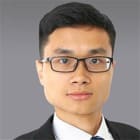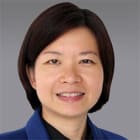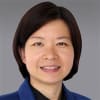commentary Commentary
Commentary: Hong Kong and Shenzhen showed us what quality early childhood education looks like
Educators in early childhood centres in China have demonstrated curriculum leadership and that has made the difference, say SUSS’ Dr Yang Weipeng and Sirene Lim.
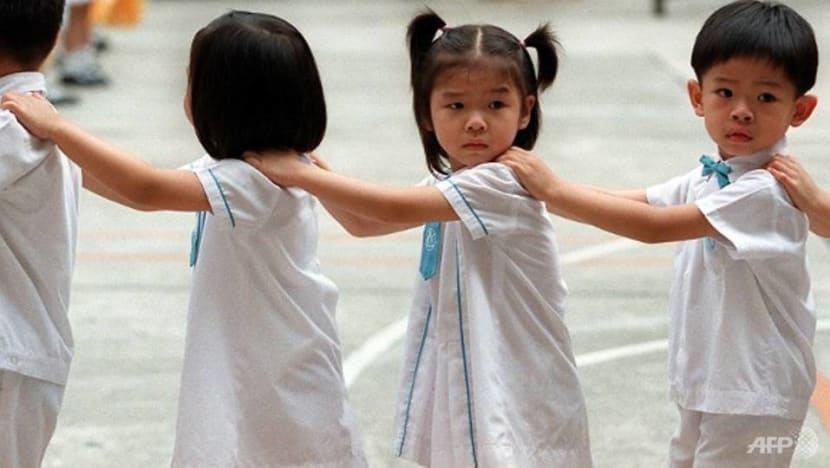
Students at the Our Lady Kindergarten in Hong Kong queue before being let out for recess. (Photo: AFP Photo/Stephen Shaver)
SINGAPORE: “We do not use commercially bought toys. We only use learning materials. All of them are developed by the teachers themselves, over time,” said Ms Young*, a principal of a kindergarten in Lam Tin, Hong Kong.
One of us was in Hong Kong in 2017 to study how pre-schools had been developing their own curriculum for children between three and six.
“In the science area, you want the children to play with water, but how? Teachers should read up to learn about science concepts, as well as take the time to think through, to get some ideas for developing the materials that will be best for children to explore big ideas and concepts about the flow of water and how it moves, for example,” she continued.
In Hong Kong and Mainland China, many kindergartens have been designing their own centre-specific curricula since the turn of the millennium, an effort in line with the Chinese authorities’ early education reform efforts and improvements in service quality standards.
WHAT IS QUALITY EARLY CHILDHOOD EDUCATION?
During Minister for Education Ong Ye Kung’s U@Live forum at the National University of Singapore in March, the subject of early childhood education was raised.
There was a call for pre-schools to be nationalised so that all children can benefit from quality early childhood education. But what makes a high-quality early childhood education?
While nationalisation of the sector could be seen as a shortcut to raise the bar for early childhood education and fast-track the provision of quality preschool education, it is worth taking a step back to think about what our society considers to be high-quality early education within childcare centres and kindergartens.
READ: What a 21st century pre-school education looks like, a commentary
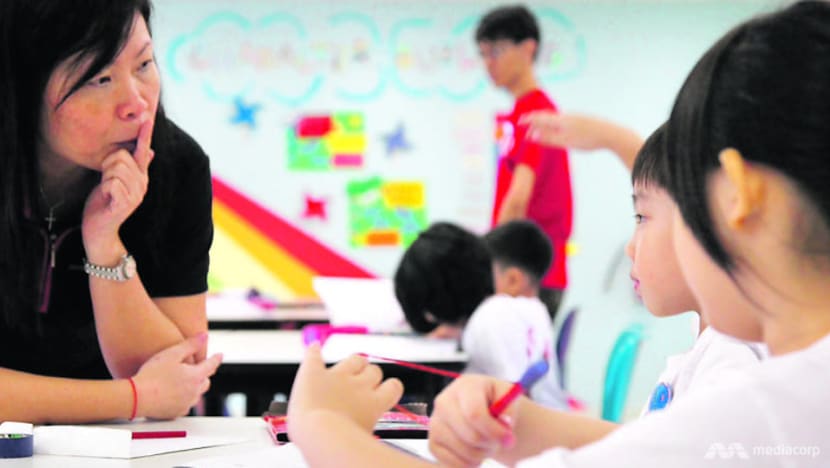
Effects of high-quality early years education can have a lasting impact on children’s learning and development, according to one UK study involving 3,000 students.
Many studies have also revealed that high-quality early years provision is not about academic hot-housing, nor letting children play freely all day. Rather, it is teachers who play a big role in facilitating children’s thinking and learning.
Early childhood educators’ abilities and willingness to learn alongside children, to cater to their curiosities, perspectives, and changing developmental needs make the difference.
But this requires a customised curriculum created with children’s day-to-day learning progress and experiences in mind.
COMMUNICATION IS KEY
In our study of Hong Kong and Shenzhen pre-schools, we noticed the teachers at all five would encourage children to engage in thinking about the physical and social world.
Children were nurtured to be more observant, to self-regulate, to see others’ perspectives, generate questions and ideas, and use their reasoning to try and solve problems.
They actively engage in all sorts of learning activities with their own interests and paces – to play with materials and work with their peers, to problem-solve in projects of their choice, and to enjoy festivals or parties with families.
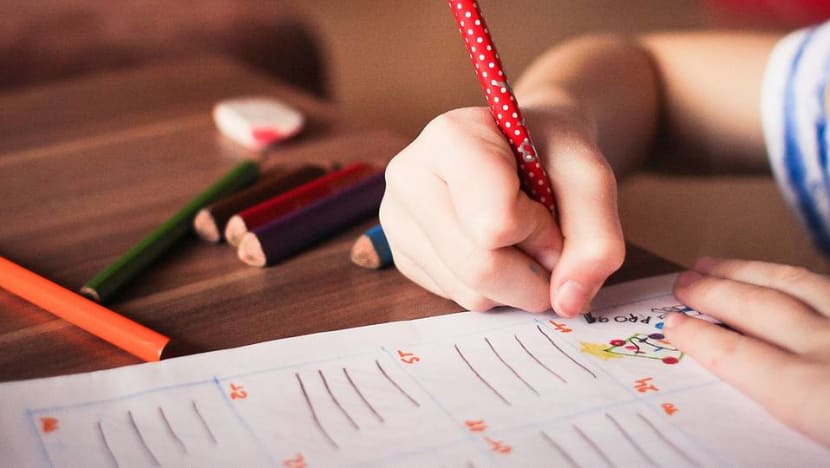
Quality education can only be achieved if there are positive relationships between well-trained teachers and children, with both sides in constant two-way communication throughout the day.
Teachers and parents should also come to an agreement that the early years should be geared towards grounding in good citizenship and wellbeing rather than preparation for the academic requirements of primary school.
READ: Effective partnerships with parents require teachers to step back too, a commentary
BOLD LEADERSHIP
Beyond teachers’ efforts, all five kindergartens showed how the quality of education was enhanced when centre leaders exercised bold leadership and were deeply involved in the area of curriculum development, alongside their teachers.
Leaders - consisting of curriculum leaders as well as administrative leaders overseeing the daily operations of the centres – put together curriculum with little guidance and support from state authorities.
In these five kindergartens, effective curriculum leadership – which influences the core tasks of teaching and learning – helped teachers, children and their parents to navigate through major changes in the curriculum with less tears and angst.
READ: In pre-school boost, parents are the missing critical players, a commentary
Before China’s curricular reform in early childhood education in the late 1990s, most Chinese kindergartens adopted subject-based curricular practices which promoted uniform, academic learning without factoring in children’s individual interests, curiosities, and individual variations in development.
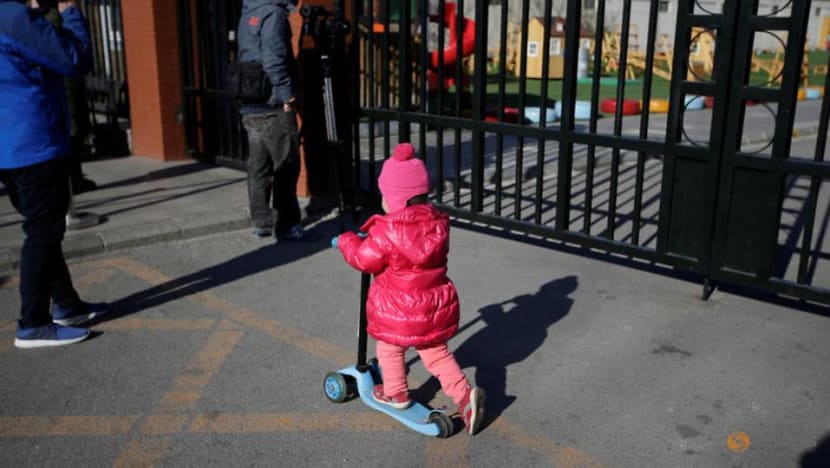
But children have multiple learning styles and needs. Principal Chen from one Hong Kong kindergarten in Causeway Bay said:
I believe every child is different. Even if I as a teacher taught them the same thing, every child’s level of understanding is not the same.
She added:
So, we cannot require them to learn exactly the same thing with the same standards. Every child is unique. What to learn depends on the children themselves.
Aware of the need to rethink their respective kindergartens’ curricula to make them more child-centred and provide for more active learning and thinking, the five kindergartens’ leaders have implemented a slew of changes to achieve their vision.
RESPECTING CHILDS’ STRENGTHS AND WEAKNESSES
The five Chinese kindergartens too designed each curriculum to respect each child’s strengths and weaknesses in learning, and provide a framework to support their different abilities. They also incorporated ideas such as play-based learning and individualised learning.
They recognised that each child might have a unique pace, and choice of learning content should cater to their needs and interests.
Children in the schools engage in activities meaningful to them and intellectually challenging enough to provoke them to think about what they are seeing and doing.
That is not to say that foundational skills necessary to a child’s development is ignored, for teachers could still support children’s development of literacy and numeracy skills through such personalised and play-based curricula.
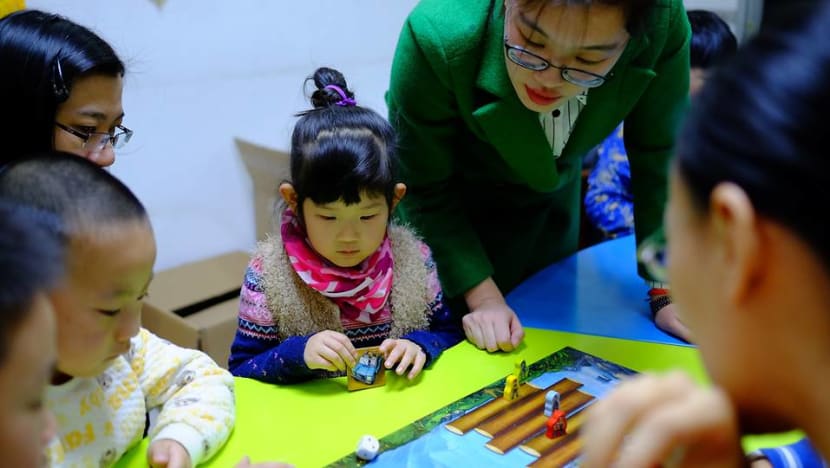
READ: No excuses, your kid should be ready for math before kindergarten, a commentary
Principal Chen said that her kindergarten adopted a hybrid structure for its new curriculum.
Spiritual education is the core of the curriculum, while thematic activity forms its overall structure … Play with objects and materials is the major channel through which children learn.
COACHING TEACHERS
After every centre developed its new curricula, the principals had to deal with another challenge: Coaching teachers and motivating them to continue developing and modifying curricula to suit children’s interests and needs.
The kindergarten leaders admitted that the process was not always easy, since they also had to get parents’ buy-in, to convince them why the new curriculum would better support their children’s intellectual learning.
In one kindergarten in Shenzhen, parents were invited to be volunteer teachers or workers in the kindergartens, where they gave talks to the children or helped to make learning materials for a particular classroom.
The vice-principal in the Hong Kong kindergarten located in Causeway Bay said they held a meeting with parents at the start of a new semester to introduce the curriculum, where they were told that no writing tasks would be assigned to children at the age of three.
We’ll show them how their kids are happy to learn. So parents have begun to share the same educational beliefs.
PRINCIPALS NEED TO TAKE LEAD
We are already seeing centre-based curriculum development in Singapore, as the early childhood education sector’s development here ramp up.
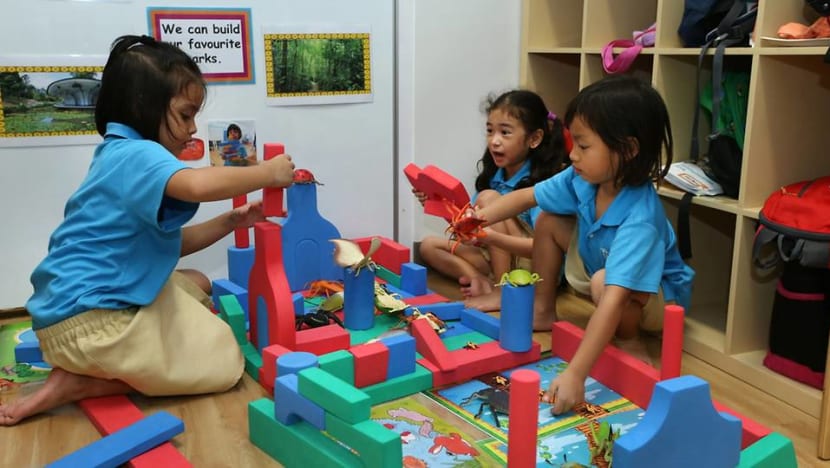
READ: How we nurture children hasn’t changed, even if tools have become digital, a commentary
For instance, the Early Childhood Development Agency (ECDA) launched its Professional Development Programme (PDP) for Leaders last year, following from its earlier launches of PDP for teachers and educators who work in childcare centres.
The various experiences of the five Chinese kindergartens suggest that professional development for early childhood educators must empower and encourage principals to exercise curriculum leadership in kindergartens and support leaders’ abilities to coach and mentor teachers within their centres.
If Singapore’s early childhood educators believe strongly in having children learn through playful and inquiry-based activities, they must continue to be supported by their organisations and leaders to persuade parents to share their vision of quality early childhood education.
Early childhood educators hold the keys to quality lifelong education, which can go a long way to developing high-functioning adults. Ongoing centre-based improvements can go a long way in creating more meaningful, authentic and interesting learning for young children’s overall development and benefit.
*The names used in this commentary are pseudonyms.
Dr Yang Weipeng is a lecturer, and Associate Professor Sirene Lim is the Academic Lead for Early Childhood Education Programme, both at the Singapore University of Social Sciences.








